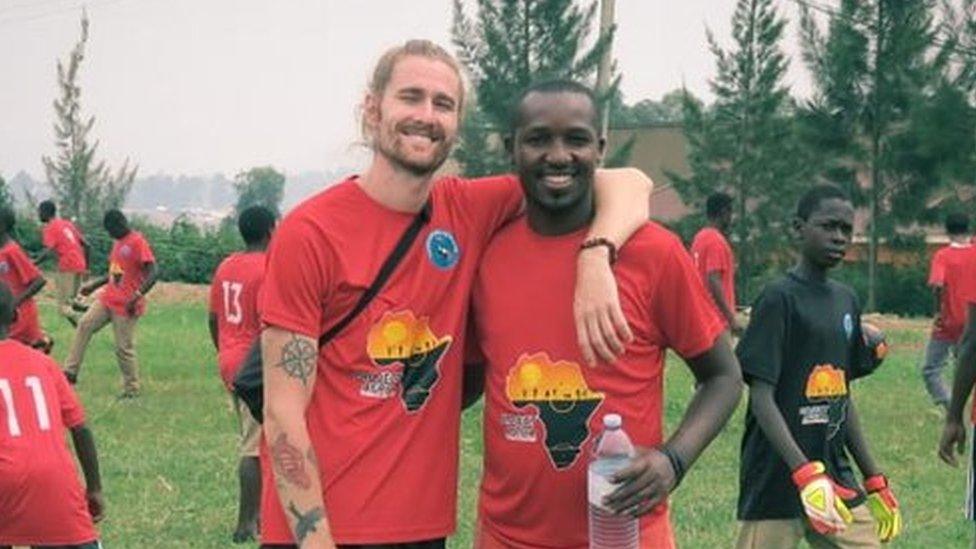'Fleeing war gave me insight into treating trauma'
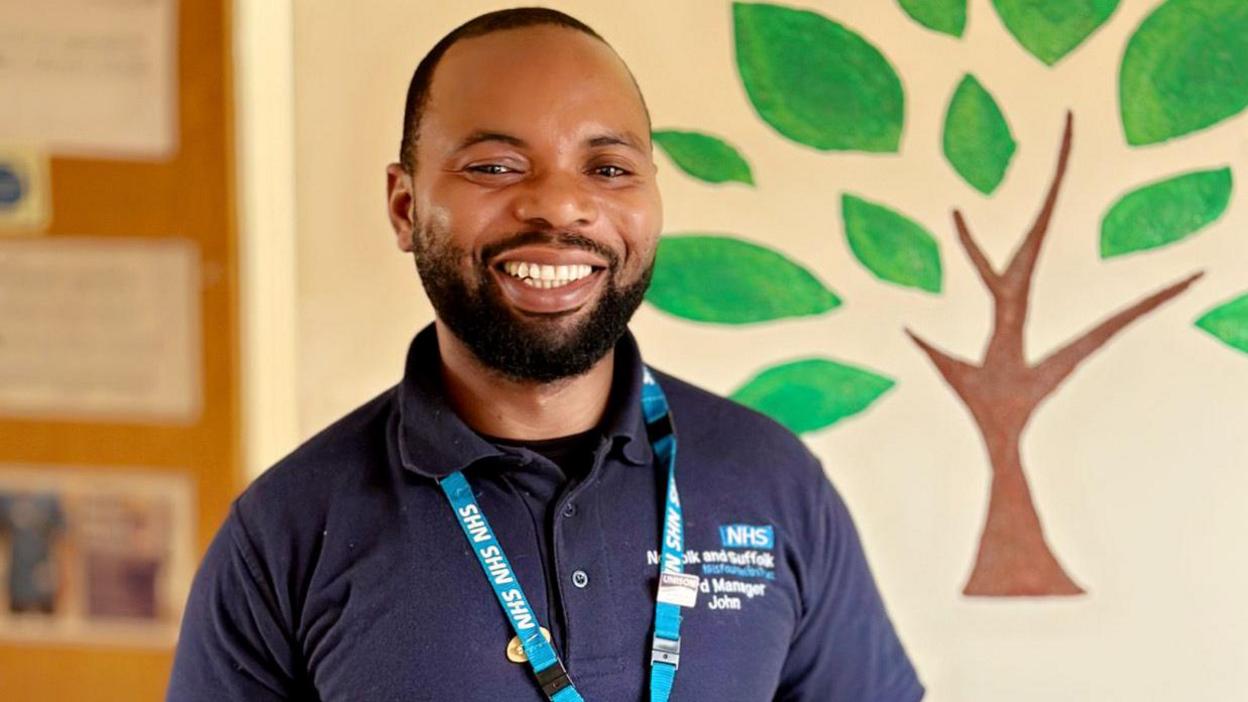
John Kasensa came to Norwich after fleeing war in the Democratic Republic of Congo as a teenager, and later became a mental health nurse
- Published
A mental health nurse who fled war as a teenager says he will “never forget the kindness and support” he was shown by communities in the UK and Africa.
John Kasensa, ward manager at Norfolk and Suffolk NHS Foundatio, externaln Trust, external (NSFT), lost his family in the war that ravaged the Democratic Republic of Congo more than 20 years ago.
He was just 16 when he and a friend made it to a refugee camp in Zambia, where he saw “the trauma of war and people struggling with their mental health”.
Those experiences eventually led him to train as a mental health nurse.
He said he entered the career “out of a deep-seated passion for supporting people in their journey towards wellness”.
'Compassionate care'
At the refugee camp, run by the United Nations, Mr Kasena experienced the kindness of strangers who took him in.
“They became my family,” he said, adding that he saw “the transformative impact of compassionate care” on his own mental health.
He said suicide was common in the camps, and people tried to support one another as best they could.
In 2007, he was granted asylum in Britain and came to Norwich at the age of 22.
“It was January, and I just remember how very cold it was,” said Mr Kasena, who spoke fluent French and Swahili but no English at the time.
He was given a place to stay, sharing with another refugee from the DRC, and assigned a case worker and mentor.
Mr Kasena volunteered at a lunch club, joined the local church and the football club.
“I will never forget the kindness I was shown and the support I got. It helped me to get back on my feet and see hope and purpose in life.
"It taught me the importance of having strong support networks,” he said.
He started work in the Post Office, but while volunteering as a first aider with the British Red Cross at football matches, someone suggested a career in healthcare.
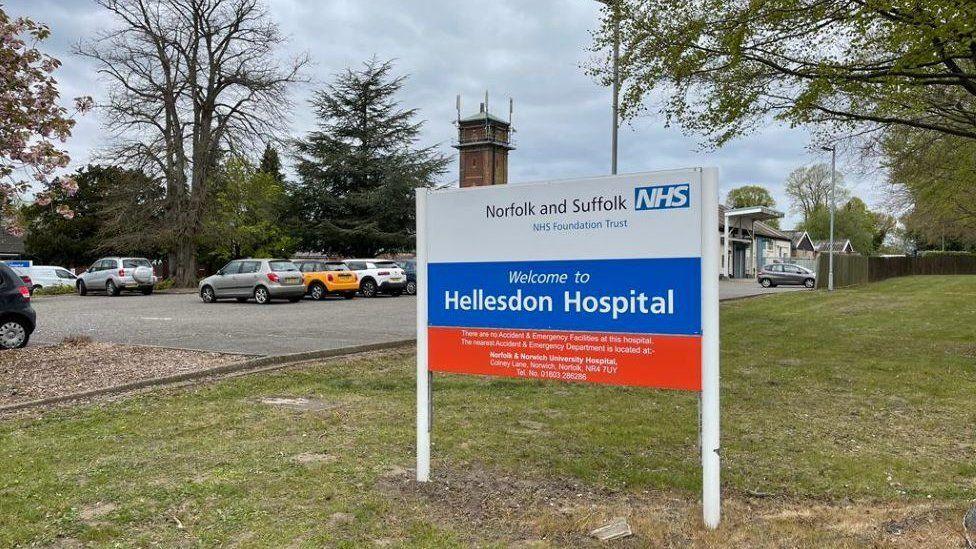
Mr Kasena became curious about mental health nursing after attending training sessions at Hellesdon Hospital in Norwich
It was during training sessions at Hellesdon Hospital in Norwich that Mr Kasena became curious about mental health and later took on shifts at Norvic Clinic (now Northside House).
“I started recognising some of the symptoms of trauma that I had seen in the camps,” he said.
“I wanted to do more to help and saw how my own experience of trauma - and of the compassion and kindness I was shown, which supported my recovery - could be valuable.”
In 2013, he joined NSFT as a clinical support worker and has now progressed to ward manager.
“I enjoy looking at each person as an individual, exploring what is most effective for them. Is it the talking? Is it the medicines? Then working with them to find the right path to recovery,” he said.
Follow Norfolk news on Facebook, external, Instagram, external and X, external. Got a story? Email eastofenglandnews@bbc.co.uk, external or WhatsApp us on 0800 169 1830
- Published17 December 2021
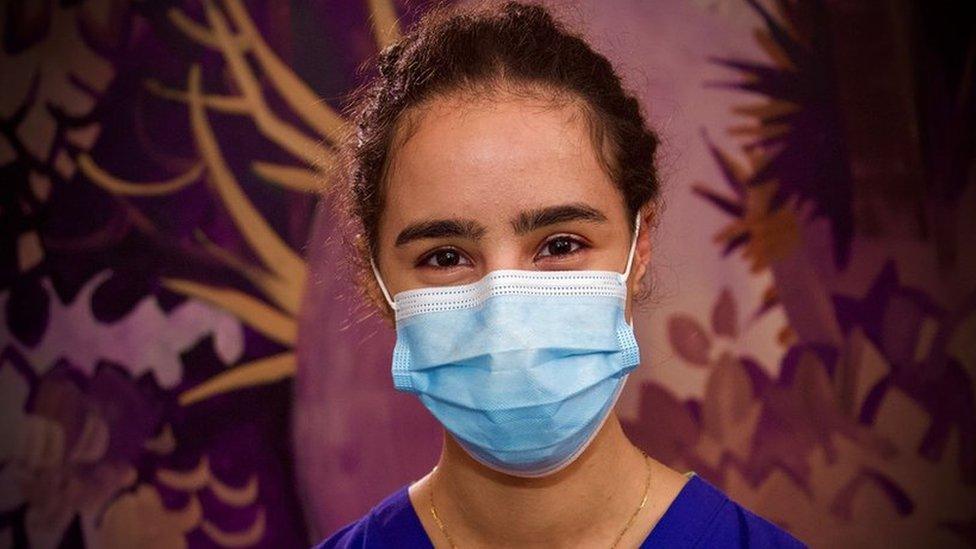
- Published10 May 2021
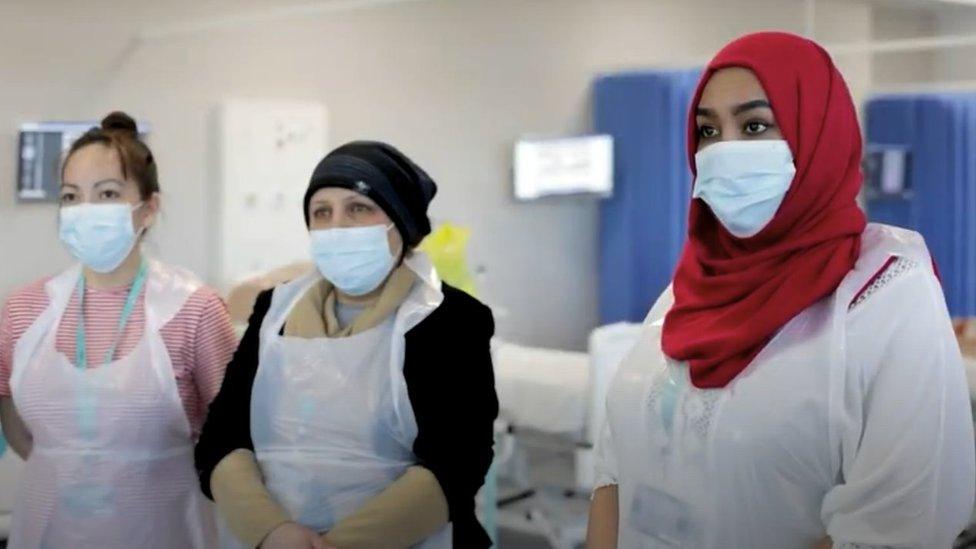
- Published3 May 2024
